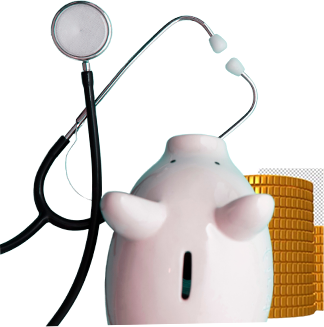PERSONALIZED DIET PLAN FROM
Nutritionists for Breastfeeding Mothers

Contact Us
Breastfeeding is a beautiful journey that establishes a unique bond between a mother and her baby. Your body goes through amazing changes when you breastfeed, creating nutrient-rich milk that aids in your baby’s development. To do this, a balanced diet is necessary. A nutritionist specializing in lactation can assist mothers in making dietary choices that support their health and the growth of their baby. Qua Nutrition offers the expertise of skilled nutritionists to provide breastfeeding mothers with guidance on their nutritional needs.

Importance of Nutrition During Breastfeeding
Breastfeeding is essential for the baby and beneficial for the mother. Breast milk provides everything a baby needs for growth and development during the first six months of life, except for vitamin D. To guarantee the amount and quality of breast milk, as well as the health and vitality of the mother, she must maintain a diet high in nutrients.
Producing breast milk requires significant energy and nutrients. On average, breastfeeding increases a mother’s caloric needs by 500 calories daily. Additionally, nutrients like protein, vitamins A, D, B12, C, selenium, zinc, and choline become even more crucial during lactation. In addition to promoting milk production, a balanced diet supports mental health and postpartum recovery.
How a Nutritionist Can Help Breastfeeding Mothers with Personalized Nutrition
A dietitian and nutritionist for breastfeeding mothers provides individualized support by attending to their particular nutritional requirements. Here are some ways they assist:
Lactation Nutrition Education: Nutritionists provide essential information about how different foods affect breast milk production and quality.
Personalized Meal Plans: A nutritionist for lactating mothers develops a personalized plan based on dietary restrictions, cultural considerations, and personal preferences to make sure the mother meets her nutritional needs without gaining unnecessary weight.
Supplement Recommendations: A nutritionist evaluates if supplements like vitamin D, B12, or omega fatty acids are necessary.
Monitoring and Adjustments: Frequent check-ins guarantee that the mother is on course, and adjustments are made in response to developments or particular issues.
Addressing Co-existing Conditions: From hormonal imbalances to digestive problems, a nutritionist can modify the plan to address several health issues at once.

Key Nutritional Recommendations for Breastfeeding Mothers
To produce nutrient-rich milk, mothers must concentrate on eating a range of foods. Some important suggestions are:
Protein-rich foods: Add lean meats, poultry, eggs, fish, beans, and lentils in the diet. Protein supports muscle repair and provides sustained energy.
Healthy fats: Avocados, nuts, seeds, and olive oil are excellent sources. Omega-3 fatty acids from fish like salmon or mackerel are especially important for the baby’s brain development.
Calcium: Found in milk, cheese, and leafy greens.
Iron: Present in red meat, beans, and fortified cereals.
Vitamin D: Available through fortified foods and sun exposure.
Vitamin A: Abundant in carrots, sweet potatoes, and leafy greens.
Zinc and Selenium: Found in nuts, seeds, and seafood.
Hydration: Since 87% of breast milk is water, it is essential to consume enough fluids. Consume foods high in water content, such as fruits and vegetables, and drink lots of water.
Lactogenic foods: Brewer’s yeast, flaxseed, fenugreek, and oats can all increase milk production.
Common Challenges Breastfeeding Mothers Face with Nutrition
Breastfeeding moms face several obstacles that may affect their nutritional intake:
Increased Hunger and Fatigue: The energy demands of producing milk often lead to increased hunger and exhaustion, making it easy to resort to quick but unhealthy options.
Dietary Restrictions: Moms may need to cut out specific foods from their diets due to the baby’s food allergies or conditions like colic.
Time Constraints: Due to hectic schedules, meal preparation may be neglected, resulting in poor meal choices or missed meals.
Inadequate Hydration: Many mothers forget to drink enough water, which can affect milk supply and energy levels.
Weight Management: It can be difficult to balance adequate nutrition with weight loss after giving birth.


Why a Customized Diet is Essential During the Breastfeeding Period
Every breastfeeding experience is different, and so are moms’ dietary requirements. A one-size-fits-all strategy is not effective because dietary requirements are impacted by several factors such as the mother’s metabolism, pre-pregnancy weight, activity level, and any existing medical conditions.
Ensures Optimal Nutrition: Meeting increased nutrient demands without overconsumption of calories.
Supports Lactation: Certain foods enhance milk production, while others may reduce it.
Addresses Weight Goals: Assists mothers in losing weight postpartum in a healthy manner without compromising their milk supply.
Considers Personal Preferences: Ensures the diet is sustainable and enjoyable.
Adapts to Cultural Needs: Recognizes dietary customs and limitations.
Why Qua Nutrition is the Best Choice for Breastfeeding Nutrition Support
For nursing moms, Qua Nutrition stands out as a reliable partner. With a focus on lactation nutrition, our team of certified dietitians and nutritionists provides evidence-based guidance.
Meal plans are tailored to individual health goals, preferences, and lifestyles. Beyond diet planning, we address hydration, supplement needs, and overall wellness. Regular check-ins guarantee progress and offer a platform for talking about any difficulties. Qua Nutrition ensures a smoother breastfeeding journey with the confidence that both mother and child are receiving optimal care.
Breastfeeding is a special period in a mother’s life that requires attention to both her physical and mental well-being. Mothers can ensure they are well nourished, energized, and ready to care for their babies by collaborating with a nutritionist. Eating a balanced diet doesn’t just boost milk production, it also supports healing and overall wellness. The journey becomes easier, healthier, and more satisfying with Qua Nutrition’s expert advice. Contact us to consult with nutritionists for breastfeeding mothers and get advice for the beautiful journey of motherhood.

Q: What foods should I avoid while breastfeeding?
A: Avoid excessive caffeine, alcohol, and highly processed foods. Limit fish high in mercury, such as shark and swordfish.
Q: Can I lose weight while breastfeeding?
A: Yes, it is important to do it slowly. To maintain your milk production, focus on consuming a balanced diet and seek advice from a nutritionist.
Q: How can I boost my milk supply?
A: Include foods that promote the production of milk, such as flaxseed, fenugreek, and oats. Keeping yourself well-hydrated and breastfeeding often is crucial.
Q: Do I need supplements while breastfeeding?
A: Mothers with particular deficiencies may require Vitamin D or B12 supplements. Seek personalized guidance from a doctor or nutritionist.
Q: During breastfeeding, how much water should I drink each day?
A: Every day, consume 12 cups or more of fluids. Water, soups, and herbal teas are all nutritious choices.


